|
This reflection was written over my summer sabbatical. I share it this week in memory of a beloved congregation. I watched a movie this week that reminded me of her. I saw her niece last week. And I'm going to the theater tomorrow with one of her closest friends. When we choose community, we experience life exponentially - the good and the bad, the happy and the sad. Pete electric wheelchair is a hand-me-down from Jean. We remain so very grateful for her life.  A woman on the committee that interviewed me for my current pastoral position was assigned the task of asking me a few questions on behalf of the committee. In the conversation, we got talking about my studies in seminary; she was a classics major in undergrad who went on to teach middle school students. She was retired at this point, enjoyed reading and gardening. She had two large, grey poodles who I would later find out were trained as therapy dogs. The older was a bit better at visiting people in the hospital; she was more docile in nature. But the younger, rambunctious one brought the livelihood that many in the nursing home enjoyed. Jean was a breast cancer survivor who found many ways to “give back.” The decision to train her dogs as therapy dogs was one way that she could serve people who were in pain. She was not afraid of pain. She mentored other women going through treatment and she spoke at cancer groups. The first thing I noticed about Jean was her speech pattern. She spoke intentionally with a little rasp in her voice, slowly – very slowly, like she had a hard time getting the words out. Listening in general takes patience so with Jean, we found a tad bit more patience. Jean was a church person. Her parents raised her in the Baptist tradition and she knew her way around the Bible really well. But with her knowledge of the classics, she also knew her way around mythology and world religions. She was the leader of one of the small groups at our church. An interesting group of people who followed the thread of their interests, finding resources along the way. Jean and I spoke often about our theological journeys – how did we go from memorizing bible verses to understanding the Bible as the stories of the faithful as they sought to understand God. Jean and her husband Charlie sat to my right about 7 pews back on the side aisle in church. Always ready to worship, always quick to encourage, and always ready to “help out.” She had served as an elder for years, specifically functioning as the clerk of session (the Presbyterian position on the board of elders who keeps the minutes and keeps the sanity.) She'd served a variety of committees, mostly the mission committee as she was deeply committed to social justice concerns. She and her best friend Mary Ellen were responsible for the Heifer International Booth at the Mission Fair each year. Decorating the booth with farm dolls and replicas of barns, they wore themselves out talking about the gift of a goat or how a few chickens could sustain a family for generations. While Jean was committed to brokenness around the world, she found herself drawn to conversations with people in her immediate sphere of influence – conversations about our personal brokenness. And the church – well, that church has its share of personal pain. So Jean was invited to serve as a Deacon right around the time that I invited the Deacons to begin having a conversation about pastoral care. Many times, the Deacons of churches end up taking on all kinds of “helping” ministries: they organize taping the service, or arranging for chancel flowers or take care of fellowship time. Those ministries are needed, but Jean was asking for more, “How can we be more intentional about providing pastoral care to those in our congregation who are hurting, who are broken?” And thus began our journey from a deacon board who “helped out” to one who befriended others. Jean was a strong leader, some might say strong headed. And yet she couldn't have weighed 120 pounds. She was almost feeble looking, until she shared her opinion of course. She had short, salt and pepper hair that was always styled. She enjoyed make up and jewelry and so a pair of faded jeans, were paired with a yellow and blue long sleeved cotton top was matched with a chunky silver necklace and matching earrings. She wore glasses and had caring, serious, blue eyes decorated with a tasteful amount of mascara and eye liner.  She set about in her own style to rework the board of Deacons, organizing the “families” in the church so as to provide optimal care. She began to distribute the more painful situations: an elderly father died, a child went to college for the first time, a husband diagnosed with MS, surgery on a cancerous tumor or chronic depression or fibromayalsia. Her organizational skills were unmatched and she ran the Deacon Board like a swiss watch – until she was diagnosed with ALS, Amyotrophic Lateral Sclerosis. She was devastated; we were devastated. She and her husband lived on a dead end in Hillsborough, just across the canal from church. She escorted me to their glass enclosed patio – clearly her favorite room in the house. She sat on the couch and I sat in the flowered chair opposite her. We were surrounded by 30 plants that she had tended with her own hands. The feeble, shaky hands that now produce horrible penmanship. She had a list beside her that read: tomatoes garlic book group Beth - why me pills “Jean, how are you?” She began to cry and that was the end of our conversation. I moved to sit beside her on the couch and held her hand while she cried. Occasionally, she would look out the window, attempt to fight back tears and find words. But the tears won. Instead she would reach for another tissue as I squeezed her hand tighter or rubbed her back. From the ALS Association's website: She fed her body with the best organic produce. She exercised religiously. She prayed vigorously. She read voraciously. And yet her body is no longer nourishing her muscles. Beginning with her hands and now that I'm holding one in mine, I can feel the lack of form between her thumb and forefinger. I began to cry too. I can still feel the pain of those 45 minutes together. Not physical pain yet, just raw pain. Pain without words, pain of finding yourself so small in relationship to something so devastating. Pain of life lost too soon. Pain that makes talking about "why me?" unrealistic.
"Well," she said, "I'm going to start dinner now." I kissed her lightly on her forehead and said I'd see her on Sunday. “I love you Jean.” “I love you too,” she said slowly with her signature raspy voice.
0 Comments
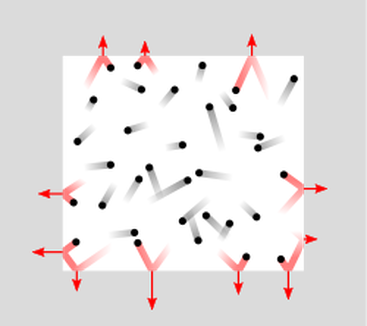 Pressure as exerted by particle collisions inside a closed container. It's 9pm. Pete cut his ankle. We're not sure where or how. But he asked if I could come investigate when he noticed blood on the kitchen floor. He scraped off a chunk of flesh from his right ankle. His sock was saturated with blood. “You didn't feel this?” I asked. “No,” he said. I've been concerned about his feet since he's been in a wheelchair. They're often puffy, filled with fluid... and a bluish color. That can't be good. His right leg is weaker than his left, although both legs at this point are weak. He's lost a lot of dexterity in his fingers too. And while I'm listing things – his balance and core muscles have taken a hit this last year. Help. Yesterday's help was about cleaning up blood from an ankle. And then cleaning it up from the rug. And then cleaning it again from the ankle because it wouldn't stop bleeding. And then cleaning the rug again. Cleaning the leg rests on the wheelchair – ew. Yes, ew. Gross. But the thing that got me was having to clean the ankle again. He can do this. Once we found where the wound was, he could take care of it. He can left his leg, he can clean it. He can elevate it. He can take care of himself. I'm fine scrubbing the rug. I get that he's not going to be able to get on his hands and knees and scrub a rug. But taking care of his own ankle. Yes, he could. And yet he relied on me or I enabled him to rely on me for 30 minutes before I came to my senses. Wait a minute... you can do this. Why am I doing this? Why am I helping? Why do you need my help for this? There I stood in the middle of our gigantic handicap accessible bathroom sticking up for myself and my time and my energy. Like an attorney, I argued on behalf of the spouse who is being taken over by the caregiver. “Which do you want?” I asked, “A spouse or caregiver.” Both. The answer is both. Now it's 5:44 in the morning. I hear the beep of his electric wheelchair come on, “budup.” First I hear him grunt a tiny grunt as he swings his legs out of bed, hoping that the momentum will position him upright. Then I hear another grunt or two as he transfers from bed to chair. Then, “budup” and he's off. The wheels of the chair on the rug sound like Gumby. Remember Gumby? “Shoop, shoop” only this is more like a constant, “shooooo... until he stops, oop.” I'll wait without worry for about five minutes. Then I'll wonder why I don't hear anything. I'll give it another five and then if still there is no sound, I will say, “You ok?” Usually that is followed by “Yup.” Usually means 90% of the time. But 10% - yes, it's only 10% - but my Lord, it's 10% of the time, the answer is, “No, I could use some help.” The wound was open. Clean the wound. Clean the floor. Neosporin. Bandaids. This time there were no questions about whether he wanted a caregiver or a spouse. The answer is both. I am a spouse/caregiver. The hardest task is both balancing those roles and parsing which is which. When Pete cut his ankle, it was 9pm. We had a finished a full week of work and play together. A big party, an early morning with our granddaughter, a movie and a meeting with a builder. He's exhausted. It's possible that I am too. When he needed help again at 5:44, I helped because he's bleeding and tired and dripping blood on our floors! I step in because he needs to get back to bed so that he can get up for church tomorrow . That's where our friends are, where his support system is. It is the place where everyone knows his name. It's where others receive his love and return in kind. Some weeks when he misses church, I am the only human contact he has. It's 8:30am the next day and he's too tired to go to church. 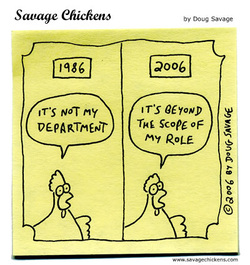 When I told my mother that we lost the lease, I became the proud recipient of a biblical pep talk. It began with, “”When I pray for you, I just know that God is in this.” My dad did the same thing. His pep talk began with, “honey. God has another plan.” I had the courage to tell my dad, “you're going to have to believe that for me today.” There was a pause and he said, “well, I can do that.” The housing option on the table that day was a one year lease. My friend thinks that my life is filled with unpredictability and therefore I should not introduce a known upheaval. I tried to say that maybe the lesson in it for me is to learn to live one day at a time. She cut me off to say that she would not agree that the Holy Spirit has that lesson for me in this. “You're already living that lesson,” she said. Note that she and my dad and my mom all believe that God is somehow in this. God has some “hand” in my next home. My mother wants me to rely on the Lord. “You've gotta simply trust the Lord for this. God is in this. I'm sure of it. She told me to go home, take Pete's hand and then quoting a scripture says, “present your requests to God with thanksgiving.” I didn't have the heart to tell her that I simply no longer think that finding me a place to live is on God's job description. In fact, if it is we all have much bigger problems. 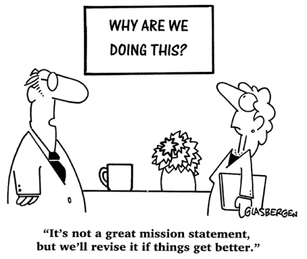 Multiple Choice: One of the tasks on God's job description is: A. Protecting children from the sex trade B. Feeding the hungry C. Preventing tsunamis D. Finding Beth and Pete a new home within their time frame and price range E. None of the above Answer – in my humble opinion or IMHO – E. None of the Above. Why do I choose E? Because it doesn't seem as though A-C is getting done and they are more important than D – IMHO. True of False: If any of A-D are on God's job description, God needs to be fired for gross negligence. My answer: T. Let's be honest, what's God doing? If there be a God, it's safe to say that God is not doing the things that we think should be on God's job description. Protecting widows and orphans, creating peaceful activity among humanity, keeping women from being abused, preventing wars based on religious ideology, preventing super powers from controlling the little people of the world. 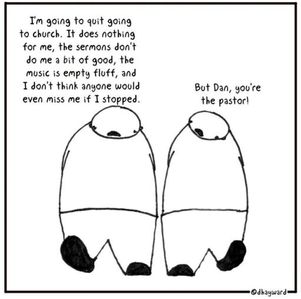 And so I go back to the original question and my original answer. Perhaps “none of the above” is on God's job description. First, isn't that great?! I can stop being angry at God for slacking on the job! If providing a new home for Pete and I is not on God's job description, then when it doesn't happen, I can stop blaming God. Not blaming God for things that God wasn't supposed to do is a good first step toward establishing an appropriate relationship with God. The next step might be getting to know God. If this were a possibility, I'd want to meet at a diner for breakfast. I imagine God already sitting in a booth and drinking coffee. I begin, “So God, where you from?” If I were writing the script, God would say, “I come from before.” I'd nod and wonder, “What the hell does that mean?” And then I'd wonder, “What the hell do I say to that?” I continue because I am tenacious. “So, what's your favorite color? Oh no, let me guess. It's green, right?” God responds, “I can see why you would think that. But have you considered that the way that you see green is not the way that I see green.” I'm thrilled that my tea has arrived and I look God right in the face (not quite sure what God's face is like) and I say, “In fact, I have considered that.” Clearly, I don't think that God is a great conversationalist. And so asking God to help me understand God's job description is probably not going to get me very far. And so I'm still left with considering what is on God's job description because I've ruled out the sex trade, hunger, tsunamis and my new home. To ask the question of God's job description begs the question of ours. What is our job description? The prophet Micah wrote the words, “What does the Lord require of you? But to do justice and to love kindness and to walk humbly.” Job Title: Human Being Objective: Do justice, Love kindness, Walk humbly with God Turns out that some of the things that we thought were on God's job description are actually on ours. Protecting widows and orphans, creating peaceful activity among humanity, keeping women from being abused, preventing wars based on religious ideology, preventing super powers from controlling the little people of the world... uh oh. 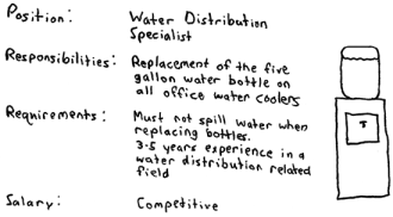 Mercy! What are we to do? Maybe that's where the conversation begins with God. What are we to do? And not What are you going to do? It seems that talking to God about the things that concern us helps. But how? Well, my mom was onto something. The full scripture that she was quoting is, “Present your requests to God with thanksgiving and the peace of God, which passes all understanding, will guard our hearts and minds.” Our job: Talk to God and to one another - and be thankful. God's job: Offer peace. I confess that I didn't go home and take Pete's hand and say a prayer. Instead I snuggled on the couch and asked, “What is it that you really want in a house?” And we talked. And I believed that God was with us. Pete and I don't always understand each other and we still have no idea what color green the other sees – let alone what color green God sees. I said my piece. Pete said his piece. God offered peace. That's on God's job description. |
What is this blog about?These are some of the reflections that I am fashioning into a memoir about coming to peace with my husband's diagnosis of multiple sclerosis.
|



